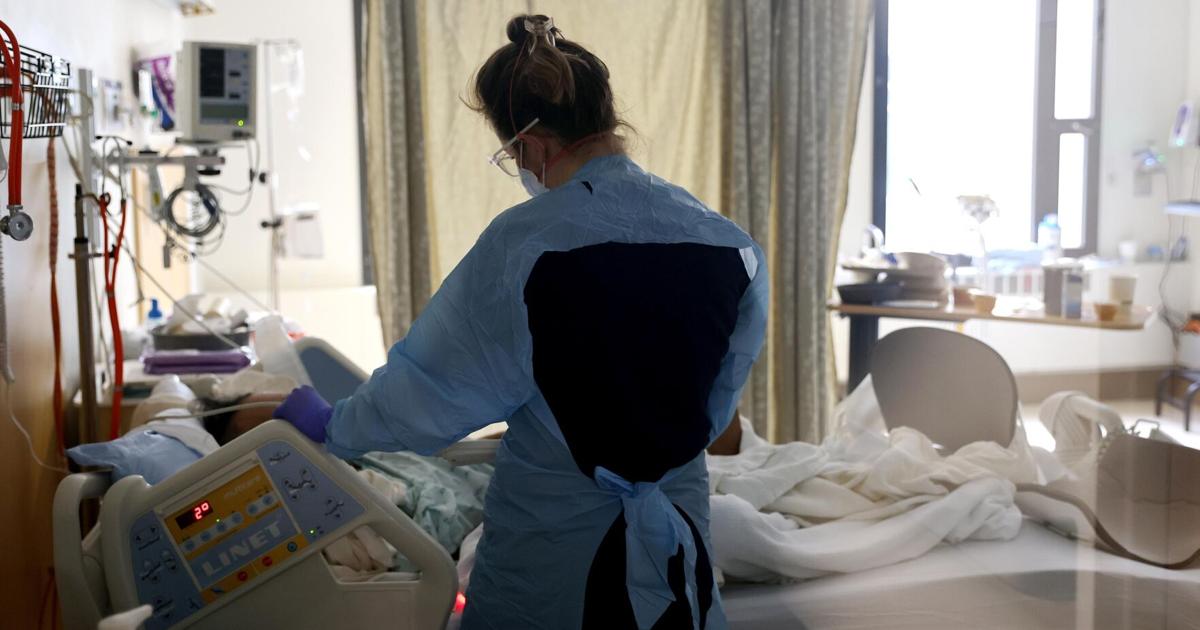TUCSON, Ariz. (KVOA) - In a groundbreaking development, Arizonans can now apply for worker’s compensation if they contract COVID-19 while on the job. This landmark decision stems from a widow’s determined fight to secure worker’s compensation following her husband’s tragic demise due to COVID-19.
Gabrielle Parish has all of the details after an Arizona woman won a lawsuit to receive workers comp benefits after her husband died after getting Covid-19 at work.
Court documents unequivocally state that if someone contracts COVID-19 at their workplace, they are entitled to file for worker’s compensation. An essential detail to note is that if a worker succumbs to the virus, their next of kin will receive financial support.
We had the opportunity to speak with Attorney Dennis Kurth, who played a crucial role in this case. He shed light on how it all began: “She filed a work comp complaint with the Industrial Commission of Arizona to secure widow’s benefits, and that claim was denied,” Kurth explained.
This denial prompted the widow to take legal action against the company, marking the inception of this historic case. Kurth noted, “This is apparently the first case where an insurance company lost and then decided to take it to the court of appeals. They are arguing that COVID-19 should never be covered by workers’ comp as a matter of law.”
However, there is a catch. If an employee chooses to accept the compensation, they relinquish their right to sue the company, even if they can prove they contracted the virus on the job. Additionally, there’s a time frame to keep in mind: workers must file their claims within a year after contracting COVID-19.
Kurth added, “Now that the court of appeals has published an opinion stating that COVID-19 is compensable if you meet the statutory and case law requirements, people may start looking back and thinking, ‘Oh, I should have filed a claim.’”
It’s essential to emphasize that the person filing for worker’s compensation must have contracted the disease at work for this ruling to apply. Otherwise, these provisions do not come into play.
Yeah this is great if you work at an honest company, but it could also cause a lot of side effects in shitty companies. Management will start underreporting on cases or even sweeping them under the rug to save their bottom line, potentially causing more outbreaks by not telling close contacts they might be infected which lets them spread it even more. Plus the whole “must be proven it was contracted at work” sounds like there’s a lot of room for fuckery.
Yes, the rampant spread of covid will make it difficult to make the case it was caught at work, unless the work is somewhere covid is known to be like healthcare or where an outbreak is known. Unless and until we have sufficient infection control measures in most places it will continue to be difficult to know where one was exposed.
Unfortunately it’s already the norm in many workplaces to not inform employees of outbreaks. There’s little to no requirements for reporting cases so businesses have no responsibility to keep covid out of the workplace and people are getting sick at work. This ruling is a result of that reality, not a precipitator.
Oh wow, didn’t know that was the norm in the US. Where I live, it’s still common practice to send a memo out to any relevant people, and offer days off no questions asked if you feel any symptoms coming on.
I don’t think it would be that hard. My staff work 100% remotely but sometimes need to come into the office. It won’t apply to every situation but if they can prove they were home and then at work and then back home, I think we’d cover it.
Unless they ever go anywhere other than work and home.
Yeah… just like I said…
“If they can prove they went from home to work and then back home”
You also said “I don’t think it would be that hard.” Unless they’re a shut-in who lives alone it’s going to be tough to prove they didn’t get it from someone else in the house, or when they picked up dinner, or went out with friends, or …
It wouldn’t. They have an app that tracks any travel required for work. If it shows they were only at home or the office the whole time, it would be approved. You don’t have to be a shut-in to stay home for a workday.
And your point? If 2 days afterwards, they report being sick and they can show that they were only at work and at home, they’d be covered. You people act like contact tracing doesn’t exist.
A good decision for the workers of Arizona.
Very hard to prove even with a preponderance of evidence that you got it from work and not, say, going to 7-11 like these many receipts we found in discovery. Nurses largely didn’t and don’t get to claim it as work related.
Good.


